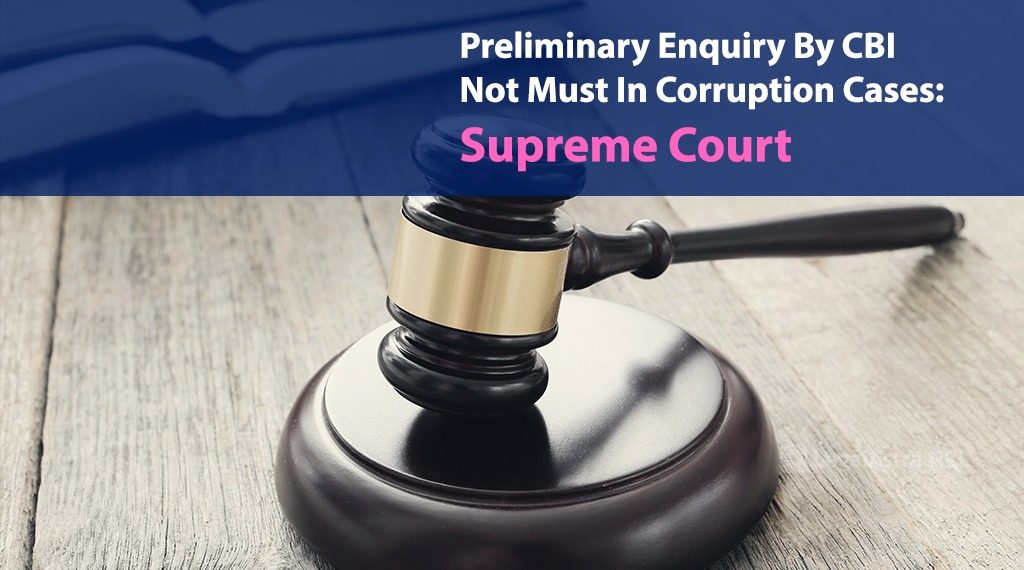The Supreme Court held on Friday that Preliminary Enquiry (PE) is not mandatory before FIR
registration by the CBI under the Code of Criminal Procedure or Prevention of Corruption
Act or the investigative agency’s manual and the accused cannot insist on it as a right.
The court said that in case the information received by the CBI, through a complaint or a
“source information” under CBI manual, discloses the commission of a cognizable offence, it
can directly register a Regular Case instead of conducting a PE.


Track your NCLT / NCLAT cases or orders in your apple iOS / Google Android smartphones. Available for free trial period of 15 days.
A bench of Justices DY Chandrachud, Vikram Nath and BV Nagarathna set aside a Telangana
High Court order of February 11, 2020 quashing the FIR registered by CBI in
disproportionate asset case against an 1992 batch IRS officer Vijayalakshmi and her husband
Audimulapu Suresh, who is presently Andhra Pradesh Education Minister.
“In view of the discussion, we hold that since the institution of a Preliminary Enquiry in cases
of corruption is not made mandatory before the registration of an FIR under the CrPC, PC
Act or even the CBI Manual, for this Court to issue a direction to that affect will be
tantamount to stepping into the legislative domain,” the bench said.
The bench said however that its formulation does not take away from the value of
conducting a PE in an appropriate case which has been acknowledged in catena of verdicts
of this court where it has been held that the accepted norm
“The registration of a Regular Case can have disastrous consequences for the career of an
officer, if the allegations ultimately turn out to be false. In a Preliminary Enquiry, the CBI is
allowed access to documentary records and speak to persons just as they would in an
investigation, which entails that information gathered can be used at the investigation stage
as well.” it said.
The bench added that conducting a PE would not take away from the ultimate goal of
prosecuting accused persons in a timely manner and “we once again clarify that if the CBI
chooses not to hold a Preliminary Enquiry, the accused cannot demand it as a matter of
right”. “Even when a Preliminary Enquiry is initiated, it has to stop as soon as the officer
ascertains that enough material has been collected which discloses the commission of a
cognizable offence,” the bench said.
The proposition that a PE is mandatory is plainly contrary to law, for it is not only contrary to
the decision of the Constitution Bench but would also tear apart the framework created by
the CBI Manual, it added.
